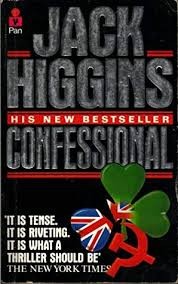
Jack Higgins is a successful and prolific thriller writer. Most known for his bestselling The Eagle Has Landed (1975), he is the author of over 80 novels since his first in 1959.
Somehow having never read Higgins, I picked up Confessional because I was aware of his standing, wanted to read something by him, but also wanted to feed my ‘Russia in fiction’ predilection.
And from the Russia-in-fiction perspective it was a bit of a treat to come straight in, chapter one, to the intriguing notion of the “live like it’s the West” spy school.
Strangely for a thriller writer whose work spans the decades of the Cold War, the Soviet collapse, and the emergence and resurgence of post-Soviet Russia, Higgins has scarcely written about the Soviet Union or Russia. (Though ‘scarcely’, in so lengthy a list of publications, still leaves a few that touch on Russian elements.)
Confessional is a pretty good read that kept the attention to the end, without rising to the heights of high tension and convincing characterisation. What mostly fascinated, as ever, was its take on Russia; or, given its publication date, the Soviet Union. The central Soviet-related elements are familiar fare for thriller writers, namely, spy schools, sleeper agents, and assassins.
The opening chapter takes place in a KGB spy-school site
where agents were trained to work in English-speaking countries in a replica of an English or American town, living exactly as they would in the West
confessional, p. 16
Reference is made to the town of Gaczyna, reputed in several Western non-fiction sources during the Cold War to be a genuine example of this sort of ‘spy training town’.
The original source for the Gaczyna story is the 1961 non-fiction book School for Spies by J. Bernard Hutton (real name Josef Heisler). Heisler was a Czech journalist who settled in London in 1939, anglicised his name, and from the 1950s onwards wrote a series of books about Soviet spying and security operations. They were supposedly works of non-fiction, but their content often suggested otherwise. (There is a detailed account on the Woodsmokeblog for those sufficiently interested).
British expert on Cold War espionage, Nigel West (real name Rupert Allason) has joined the many observers willing to take apart Hutton’s work as disinformation, saying that he
invented most of the case histories to which he referred in School for Spies
Nigel West, Historical Dictionary of Sexpionage (2009) p. 324
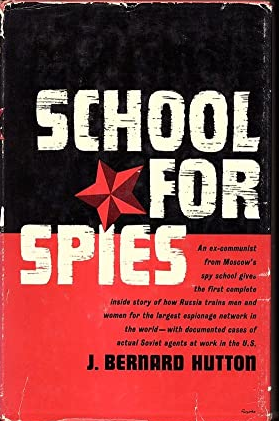
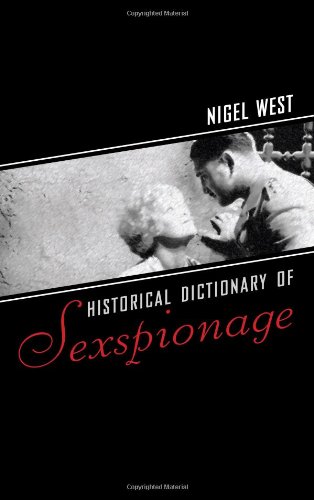
The extent to which this particular spy training town, or anything like it, was built and operated in the Soviet Union or not is a question that I’m not qualified to answer.
(Well to be fair, I’ve got a PhD in Russian Studies, so I’m probably qualified; it is just that I don’t know.)
But I do know that Gaczyna and towns like it are a recurring feature in Cold War espionage thrillers; not only in Confessional, and also in Ted Allbeury’s The Crossing (1987).
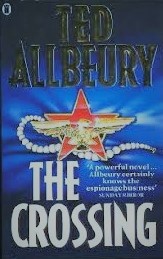
Allbeury’s The Crossing draws together threads from a number of genuine spy scandals, including that involving Gordon Lonsdale.
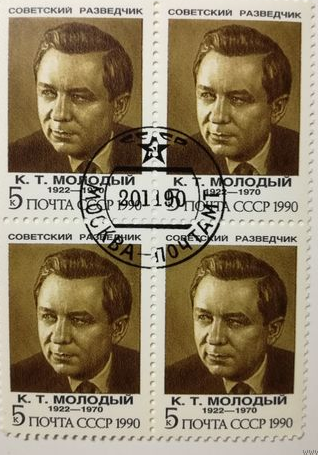
series of Soviet stamps
Hutton/Heisler had claimed that Lonsdale had been trained at Gaczynza; a claim not specifically mentioned in Gordon Corera’s well-researched account of the Lonsdale case (The Illegal: The Hunt for a Russian Spy in Post-War London, published as a Kindle Single in 2018).
Corera does talk about how Lonsdale (real name Konon Molody) worked for the Soviet government in Moscow but then
… in June 1951, Molody simply vanished. There are scant details of either Molody’s or any other illegal’s training by the KGB. As well as the spycraft, there was the need to live your cover. Being an illegal requires not just knowing a language like a native but how it is used, the idioms, the nuances, the jokes, the cultural references to films or sports
Gordon Corera, The Illegal (2018)
And of course, the best use of this secret ‘fake Western town in the USSR’ trope comes in Nelson DeMille’s wonderful thriller The Charm School (1988).
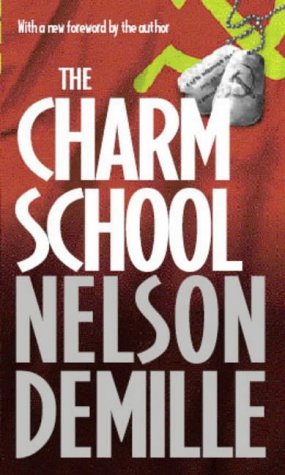
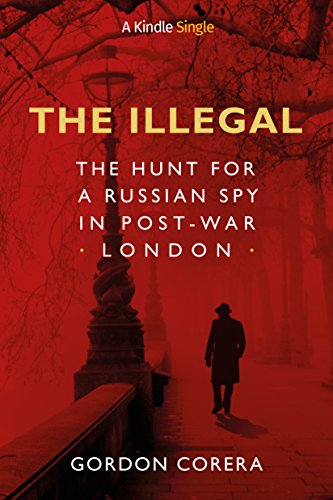
Confessional has a slightly original take on the spy training town idea, in that its example is not an American or UK settlement, but
a small Ulster market town called Drumore in the depths of the Ukraine
confessional, p. 16
A graduate of this particular training set-up becomes a KGB assassin, living as an occasionally activated sleeper agent in the Ireland of the 1970s and 1980s. So what we end up with is a thriller plot that brings together the IRA and the KGB; the two arch-enemies of the British security forces over those years.
Such a combination is not unknown in thrillers, but nor is it particularly common. Interestingly, the same week that I read Confessional, I turned next to another book that happens to portray a similar connection, as well as being set in Ukraine — John Hands Darkness at Dawn (1993).
As Confessional is set in Ireland, there really is not that much to say about its portrayal of Russia. Russia in this case is essentially the KGB and the Soviet state, and not in any greatly nuanced form. The take on Soviet life is very much from the Western headlines perspective, including an entertaining account of the defection of a leading Soviet musician on a concert tour in Paris.
There is plenty that interested me about this book; it’s just that not much of it relates to Russia. I enjoyed the description of one character as having ‘the look of some minor academic in a provincial university’. That’s me, that is. And the rare treat of a chapter or two taking place in my home-from-home, the beautiful island of Jersey, where Jack Higgins has lived for decades.
Confessional is notably of its time. For example, note the interesting insertion of the real-life character of Martin McGuinness in a relatively sympathetic portrayal. In those years, McGuinness was known in the UK as a senior IRA commander; way before his service as a respected politician in Northern Ireland after the Troubles.
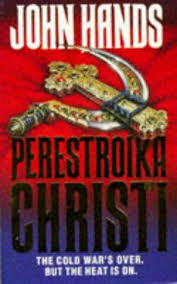
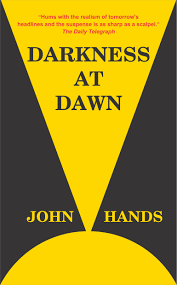
The nature of the novel’s protagonists, and the date of its publication, also lend themselves to the potential assassination of the Pope being a plot feature. Again, there are similarities to the work of John Hands in this regard, if in little other, specifically Hands’s superb first novel Perestroika Christi (1990).
In fact, without doing down the serviceable thriller that is Confessional, perhaps its most notable feature in terms of this review has been that I get to mention two of my all-time favourite late-Soviet era thrillers whilst writing about it — namely, The Charm School and Perestroika Christi. They are, to use a northern saying, different gravy.
And there is no doubt that the Russia in Fiction blog will be reviewing both of these before it reaches its hundred book target … and one of them very soon indeed.
There is little doubt too, that when russiainfiction.com publishes its list of favourite Russia-in-fiction novels, The Charm School and Perestroika Christi will both feature. Quite how high up the list they come is for another day.